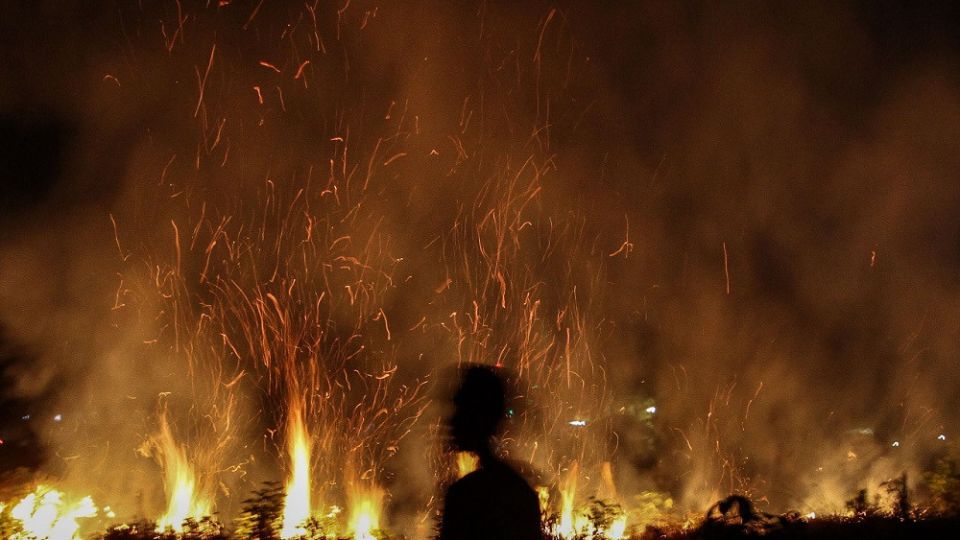September 23, 2022
JAKARTA – In late July, the United Nations General Assembly celebrated the passage of a “historic resolution” after over a decade of drafting. It was supported by 161 nations – including Indonesia – with eight abstentions and was opposed by none.
The “landmark” document, as UN Secretary-General Antonio Gutteres proclaimed, declared that living in a clean and healthy environment was a “universal human right”. It called on both member states and business enterprises work to resolve climate change, pollution and biodiversity loss.
“The international community has given universal recognition to this right and brought us closer to making it a reality for all,” Gutteres said.
In signing the resolution, Indonesia recognized that it had the “obligation to respect, protect and promote human rights, including in all actions undertaken to address environmental challenges”.
The country also concurred that climate change had disproportionately affected vulnerable groups, such as women, children and disabled persons.
But nearly three months later, in a discussion held by the Ocean Justice Initiative (IOJI), a think tank and advocacy group, experts sounded a note of caution.
While they commended Indonesia’s receptiveness to the resolution, they noted that it was still up to lawmakers to realize its tenets.
“This resolution is an achievement. The problem is in its translation [into law]. Many times [resolutions] are lost in translation,” said Todung Mulya Lubis, cofounder of IOJI and Indonesian envoy to Norway and Iceland on Tuesday.
“The resolution is non-binding, meaning its legal effects can only take place once it has been rendered into a domestic law. […] But this is not just a challenge for Indonesia, it is a question to all countries across all continents.”
Same old, same old?
And while the resolution was marked “historic” for wedding climate preservation with human rights, the concept was not novel in Indonesia, said IOJI cofounder Mas Achmad Santosa.
He noted that the country had outlined a similar concept in a 1982 law on environmental management.
The legislation recognized that “every human being has the right to a healthy and quality environment”, he said, adding that environmental preservation was a practical means of preserving “human life and welfare”.
“Not only is [the resolution] non-binding, it is not new either. It has been part of our law since 1982,” Mas Achmad said, noting that legal recognition of a concept alone was not sufficient to bring it into practice.
Todung said the energy crisis brought about by Russia’s invasion of Ukraine had further threatened global climate goals.
In Norway, coal mines that had long been closed had been reopened in response to the crisis, he noted, adding that some Scandinavian countries had admitted that they would not likely be able to fulfill their goal of carbon neutrality by 2050.
For its part, Indonesia claims it is working not just to be carbon neutral but to be a carbon sink by 2030.
“Looking at the pandemic and, now, Ukraine, I must honestly say that I am concerned about our goals. I do not think it is guaranteed that we will reach them. It will be incredibly difficult,” he said.
Despite the uncertainty that loomed over Indonesia’s climate policy, Todung said, the new resolution had brought some benefits. For instance, it had provided an updated reference for future cases involving the environment and would serve as a buttress for class action lawsuits.
“Even if it does not become a domestic law, it can be a reference that a clean and healthy environment is a universal right. Especially considering that this has been agreed upon by many countries, it is morally powerful,” said Todung.
“There is no basis whatsoever for any state deciding to [oppose] the declaration.”
On Thursday, Group of 20 co-sherpa Dian Triansyah Djani said the issue of the environment had been “at the focus” of the group’s member states under Indonesia’s presidency.
At the G20 Environment and Climate Ministerial Meeting, Dian said, the delegates drafted an outcome document on topics involving the climate.
“Many other ministers came to attend the meeting because, truthfully, this issue has been on our minds,” he said.
The meeting’s delegates, however, were unable to issue the expected joint communiqué because of a lack of consensus.


